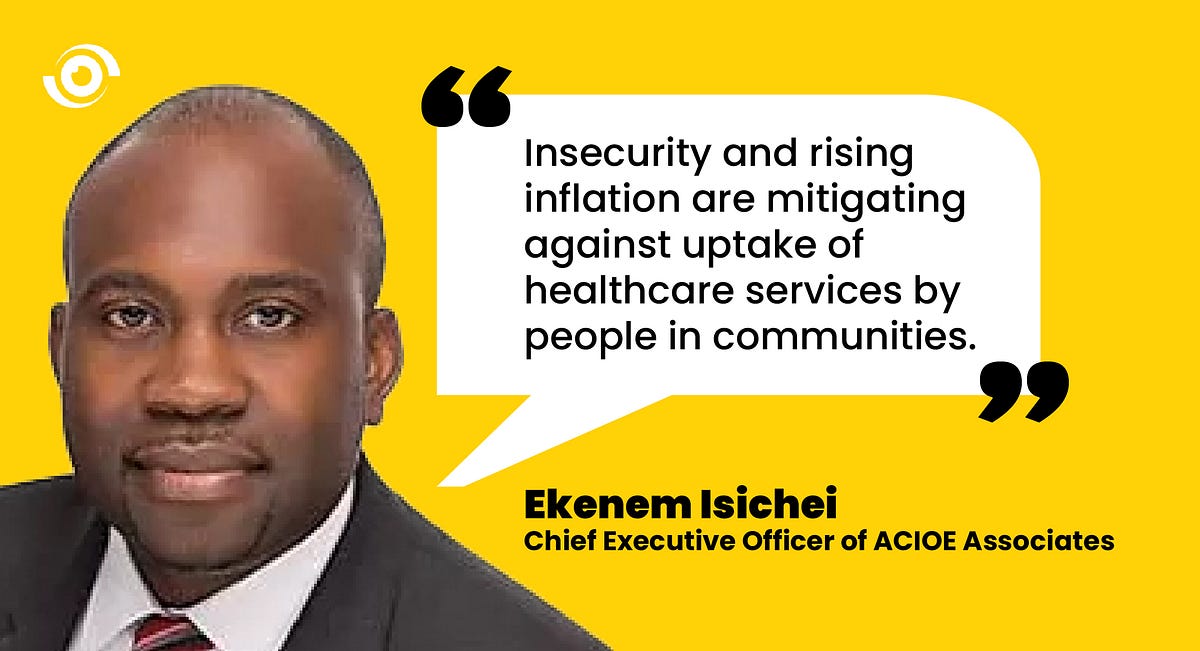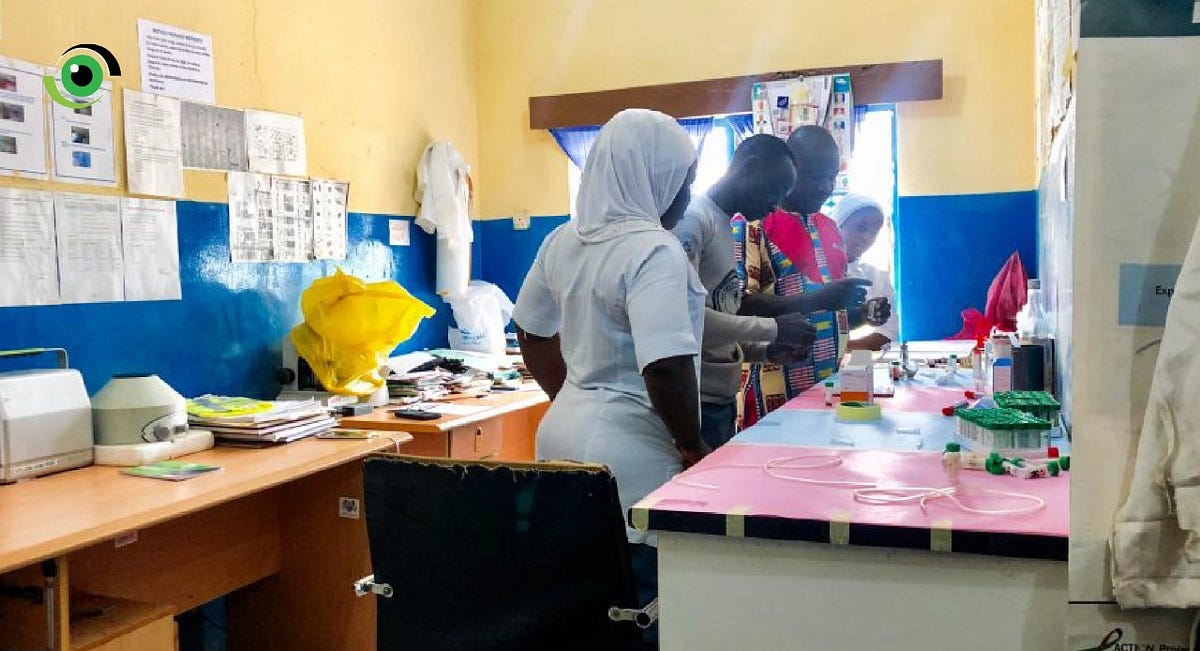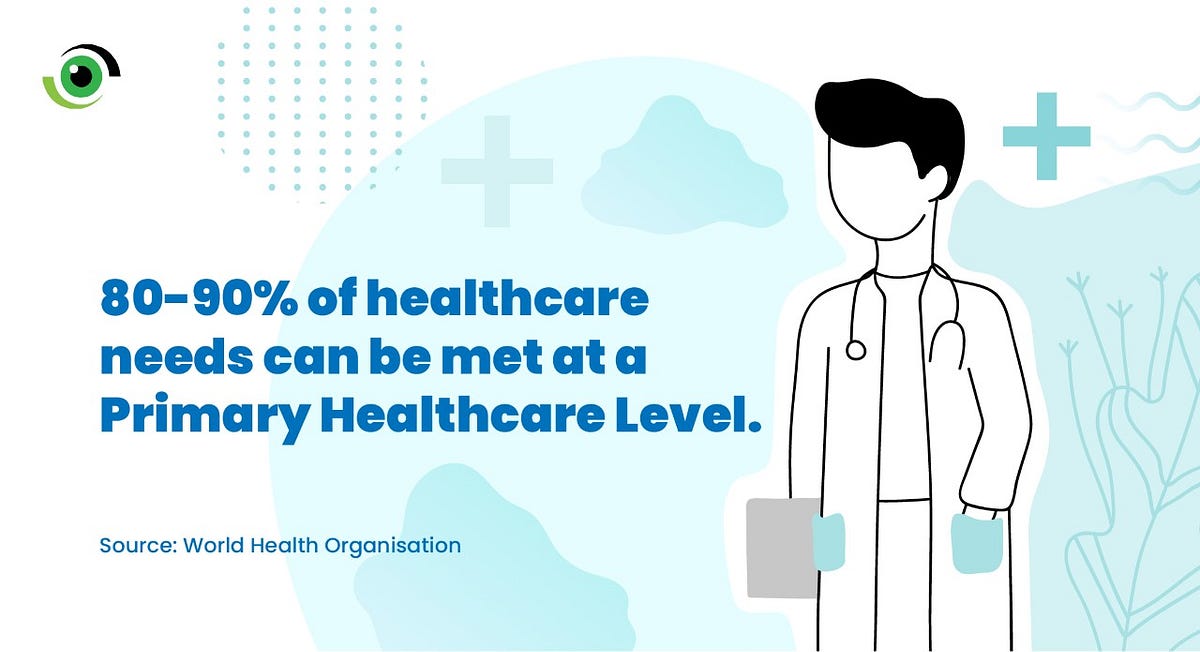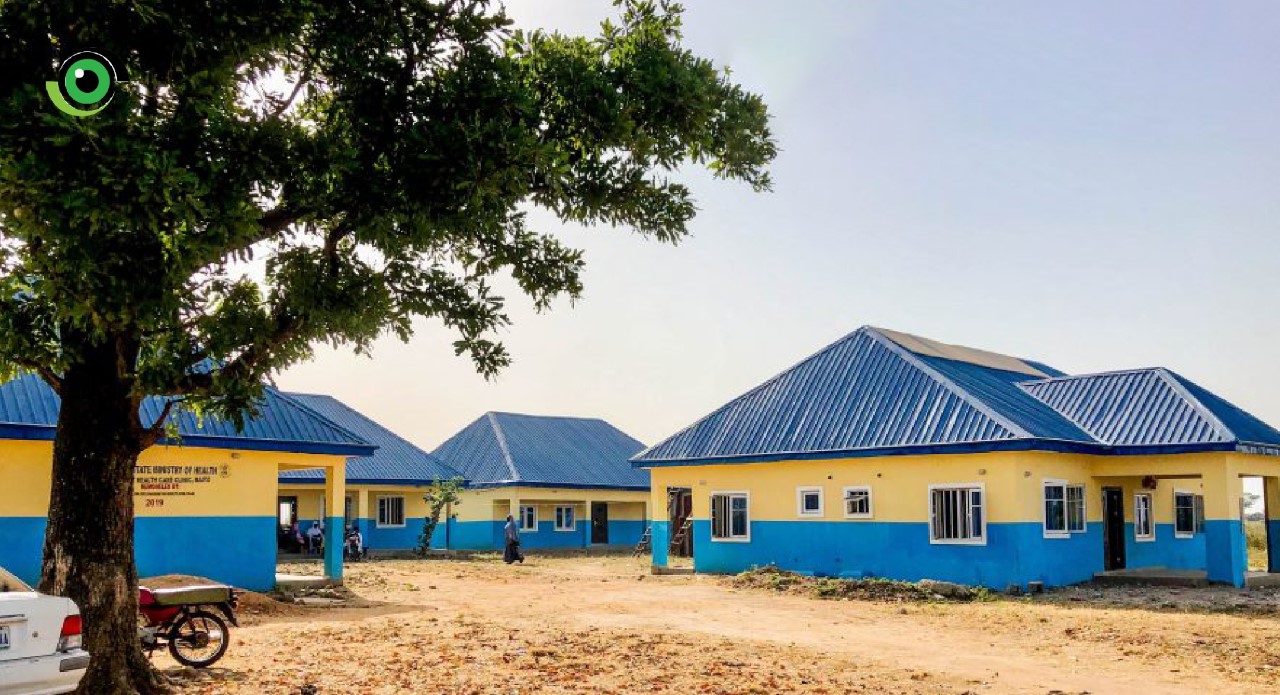Health is a human right and everyone, irrespective of location or socioeconomic status has a right to healthcare at their point of need. For a heavily populated country like Nigeria where there are income inequalities, there is a need to examine the healthcare system through the lens of health equity, which is accessible, affordable, and offers healthcare for all that need it. This brings to the fore the importance of primary healthcare which is the bedrock of every health system and should be the first port of call for most Nigerians when seeking healthcare.
It is against this backdrop that on 16 September 2021, Nigeria Health Watch and the Partnership for Advocacy in Child and Family Health at Scale (PacFah@Scale) organised a policy dialogue on Primary Health Care (PHC) in Nigeria themed “40 Years After the Alma-Ata Declaration: Primary Health Care in Nigeria”.
Challenges remain despite policies targeted at PHC delivery
Over the years, Nigeria has developed polices aimed at improving primary healthcare delivery in the country. Some of those policies, as highlighted by the keynote speaker Professor Tanimola Akande, a consultant at the University of Ilorin Teaching Hospital include the ‘Saving One Million Lives for Results (SOMLR)’ and the ‘Basic Healthare Provision Fund (BHCPF)’. Unfortunately, years after these interventions were initiated, the challenges that limit the effective delivery of PHC services still exist. They include, fragmented governance and coordination, poor and dilapidated health facilities, shortage of human resources and poor funding.
In addition to these challenges, Ekenem Isichei, Chief Executive Officer of ACIOE Associates discussed insecurity and rising inflation as other factors mitigating the uptake of healthcare services in the country. Affordability and safety are essential requirements to accessing healthcare. Rising inflation costs are forcing a growing number of families to make the tough decision between using available resources to seek healthcare or purchase other basic needs like food. Also, several states are immersed in some form of insecurity further hindering access to healthcare for both the patient and the health worker.

Private sector investment to improve PHC
Provision of quality, standard healthcare services require resources, epitomising the importance of private sector investment in the health sector. Primary Healthcare in Nigeria has received little investment from the private sector over the years. EHA Clinics, with two health facilities providing quality PHC services in Kano and Abuja, are a clear example of what happens when resources are made available and used shrewdly. According to Dr. Anthonia Hananiya, Chief Medical Officer, EHA Clinics, enormous resources were invested to ensure that the clinics provide patient centred, technology driven, healthcare services. Speaking from the experience garnered in setting up and running the two clinics, she said it is possible to set up PHCs to provide a whole care treatment approach which includes prevention and care for chronic diseases and follow-up.
Dr Hananiya emphasised the importance of leveraging on partnerships with non-governmental organisations and pharmaceutical companies to negotiate treatment prices for people in communities as evidenced by the REACH program implemented by EHA Clinics in communities across Kano State. The REACH program trains community health extension workers to provide affordable primary healthcare services to people in the communities. “We have provided quality healthcare services to over 11,000 people in communities in Kano State using the REACH Program,” she said.

Leveraging the pandemic to improve PHCs
The COVID-19 pandemic came with numerous challenges for healthcare systems around the world. However, embedded in the challenges were opportunities to improve and strengthen these systems. Nowhere is that improvement more necessary than in PHCs. According to Dr. Oyebanji Filani, Commissioner Health & Human Services, Ekiti State, the pandemic was the perfect opportunity for the state to augment the support of its PHC. Infection, Prevention and Control (IPC) mechanisms were improved across all the PHCs, in addition to improving vaccination capabilities of PHCs that resulted in Ekiti State being recognised as one of the best performing states for COVID-19 vaccine uptake in the country.
Dr. Filani added that in 2020, Ekiti State carried out an assessment that examined the reasons for underperformance of the health sector in the state. The results helped them design and implement targeted plans to effectively address the identified challenges. Some of the plans being implemented include the Ekiti State National Youth Service Scheme Medical Fellowship program, which involves deploying corp members who are medical doctors to PHCs across the state, increasing the state health budget by 200% and training of over 600 PHC workers. “The results of these initiatives are beginning to show, with improvements in immunisation and skilled birth attendance across the state,” he said.

Deriving resources to provide quality care
Providing quality healthcare, even at PHC level requires resources, and quality healthcare further attracts people, according to Dr. Charles Ezuma-Ngwu, President and Financial Director, Healthcare Innovation in Delivering Financial Analysis and Actionable Business Insights. Dr. Ezuma-Ngwu suggested that for PHCs to have the required resources to provide quality healthcare, a cost-effective payment system in the form of capitation should be adopted. Capitation is a method of payment for health services in which a physician or hospital are paid a fixed amount per enrollee, to cover a defined scope of services for a defined period, regardless of actual number or nature of services provided.
Power of advocacy
Advocacy plays an important role in both demand and supply of PHC services. This is proven by the work of the Medical Women Association of Nigeria (MWAN) under the PacFah@Scale in Kano State. According to Dr. Rahila Mukhtar, President of MWAN Kano State, their advocacy to both the executive and legislature contributed to the passage of the PHC law in the state, as well as the engagement of over 2000 PHC workers and improved funding for PHC services in the state. She said that the advocacy to religious and traditional leaders also improved uptake of PHC services such as antenatal, post-natal, skilled birth attendance and child immunisation in the state. Kano is presently one of the few states in the country with autonomous primary healthcare boards, thanks to the advocacy of organisations like MWAN PacFah@Scale.

According to the World Health Organisation, about 80–90% of an individual’s healthcare needs throughout their lifetime could be met at the primary healthcare level, further echoing the significant importance of standard, well equipped and well-staffed PHCs, particularly in rural communities.
Lack of functional PHCs endanger the lives of people, especially women and children in hard-to-reach communities. In Niger State, for example, people in Maito village in Wushishi local government area had trouble accessing healthcare due to the dilapidated PHC in the village. However, when it was rehabilitated after a Nigeria Health Watch report, community members enjoyed standard healthcare, and health workers felt encouraged and motivated to provide services.

As echoed by panellists and speakers at the PHC Policy dialogue, governments at Federal, State and LGA level in Nigeria have a lot of work to do to improve the country’s primary healthcare system. Funding, governance, coordination, infrastructure and human resource for health are some of the areas that require urgent improvement for everyone, everywhere to enjoy quality, affordable and accessible healthcare services in Nigeria.
So, 40 years after the Alma-Ata declaration, slow progress has been made improving health outcomes of patients. However, there is still much to do, especially ensuring that there is one fully-functional private or public PHC in every ward in Nigeria, as outlined in the BHCPF guideline document.



Partnering with communities to improve primary health care
by Ibanga Inyang
September 3, 2021
in Comments, News Update
0
Local community role-players can generate insight as well as drive pragmatism in health aspirations. The following few field realities speak to our current and future Primary Health Care (PHC) challenges (of course, there are many others for lessons learned).
Okoyong (Cross River State): The health team was deeply embedded in a village in Okoyong, Cross River State, in the course of eliciting research-derived evidence for determining maternal mortality ratio, using the “Sisterhood Method.” Four pre-determined questions about known death of a woman during pregnancy or child birth in last six months were asked the rural community participants, whose responses would be used as core matrix for analysis. In this particular setting, the process was excellent, so we thought.
In the course of this field activity, we interacted with a woman who was breastfeeding “her” six-day-old baby in her home, joyfully. She was asked the prescribed questions; her answers were gladdening – no death. To encourage the “mother” to continue breastfeeding “her baby”, each of us in the team of four researchers and three others brought out some token cash and gave the woman when we rose to leave. As we were leaving the compound, we saw a young woman who was standing at the edge of the compound, sobbing. Tears were rolling down her cheeks. We asked her what made her cry, she was muttering – “oh Mayen, afo okpodude ke uwem okut uto ima emi ewutde fi mi” (meaning: oh Mayen, wish you were alive to see the love being shown you now). We asked her who is Mayen; she replied – Mayen was the mother of the baby we saw being breastfed; she had died a few hours after delivering the baby. The woman breastfeeding the baby was Mayen’s immediate older sister. Mayen was 17 years old when she died after child delivery at a TBA’s “clinic”. Thus we almost missed the statistic, but for sighting the young woman who broke down emotionally.
A village in Gwarzo, Bauchi State: We went to that rural community to gain insight as to how exemption from payment for essential drugs could be transparently and honestly implemented, so that a community member would not be excluded from essential PHC, on account of inability to pay-out-of pocket at the instance of need. This was in the context of a PHC revitalization intervention framework, the Bamako Initiative (BI). The community leaders stated vehemently – they would have no problem impelling the exemption mechanism/criteria. They knew the ways and lifestyle of all their community members fully! More than outsiders did. Village members knew the men who, when they had some money, would spend it on their self-interest indulgence to the detriment of their family’s welfare; such families would not be exempted from payment for drugs or health services.
A rural suburb in Gazawa, Kano State: The meeting venue was an open ground deep in the rural community. The purpose was to raise community awareness on available reproductive health services for adolescents/youths. After the health team leader spoke, one of the community leaders present dismissed the health service offer as useless, a waste in their community. Before he finished his vituperation, the youth leader present sprang to his feet; he vigorously rebutted the elder’s statements. He asserted that the elders usually caused the community to lose in-coming benefits, by claiming the community needed no such external offer (except it was to the elders’ own personal benefit). The young man mentioned the names of three teen-aged girls in the community who died during secret abortion or childbirth in the last seven months; he challenged the elders to truthfully deny knowing about those cases.
A village located about 25 minutes’ drive from the Lapai Local Government Headquarters, Niger State: The community leaders requested the health workers to stop by their patent medicine store, set up with community contributed money. Why did the community undertake to build a patent medicine vendor drug store? They replied that a government-built PHC centre in the village next to theirs was implementing the BI programme. That health centre had essential medicines most of the time enabled by the revolving drug fund mechanism it adopted as recommended in the BI. That prudence saved the immediate community members travel expenses and other costs they would incur if they travelled to the Local Government Headquarters to buy medicine. The principle was good and the dividend viable they said, so they copied the PHC centre in that neighbouring village.
Local communities have the potential to contribute decisively to improving their health situation. Health managers and planners are inclined to make decisions computed from “evidence”. Local communities can socialize evidence, reduce the arbitrariness of planning decisions, drive and sustain effective action as well as promote targeted, equitable and differentiated service delivery (– tailoring services and interventions to reflect preferences and expectations of diverse groups and various settings).
Local community engagement can safeguard continuity of essential services during inclement circumstances; it can generate good model of integrating health care services with public health functions.
The imperatives of health security and resilient health systems should induce our top-level health experts to build local community voice and assets as adjuncts to their service delivery plans. Local community members are not always wrong or naïve on health facts and the potential external benefactors not always correct in their local context perspectives.
Dr Ibanga Inyang is based in Uyo, Akwa Ibom State